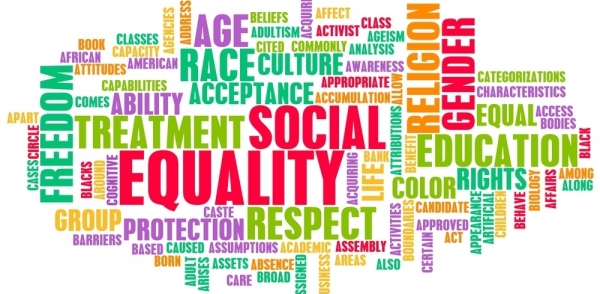Equality and diversity are essential components of health and social care. Good equality and diversity practices make sure that the services provided to people are fair and accessible to everyone. They ensure that people are treated as equals, that people get the dignity and respect they deserve and that their differences are celebrated.
This is particularly important for adults in need who, because of a disability, illness or their age, are unable to take adequate care of themselves and keep themselves from harm.
What is equality and diversity?
Equality means ensuring everyone in your setting has equal opportunities, regardless of their abilities, their background or their lifestyle.
Diversity means appreciating the differences between people and treating people’s values, beliefs, cultures and lifestyles with respect.
How does the law promote equality and diversity?
Anti-discriminatory practice is fundamental to the ethical basis of care provision and critical to the protection of people’s dignity. There are four main acts relating to equality and diversity:
- The Equality Act 2010 – this legislation provides protection against discrimination for people who possess one or more of the nine specific protected characteristics. The protected characteristics are age, disability, gender reassignment, marriage and civil partnership, pregnancy and maternity, race, religion or belief, sex, and sexual orientation. To discriminate against any of these characteristics is a breach of the law.
- The Human Rights Act 1998 – this legislation outlines the basic human rights and principles of equality. The ‘FREDA’ acronym helps you to remember what is covered by the Act: Fairness, Respect, Equality, Dignity and Autonomy.
- The Mental Capacity Act 2005 – notably the Deprivation of Liberty Safeguards (DoLS) which aim to help people who lack the capacity to maintain their independence, dignity and the right to freedom. The DoLS aid vulnerable individuals to maintain their right to dignity and equality.
- The Care Act 2014 – this legislation provides six key principles which should underpin all work with vulnerable adults. This includes ensuring that adults receive support that’s personal to them, chosen by them and has their consent
At Rehmah Rehmah Global Relief , we implement this at 2 very important areas.
1 At the staff, volunteers and management level , we want to ensure that all our team members are given the same access to opportunities and are treated with the same respect.
We strive to create an culture that promotes equality amongst all our staff and volunteers and that culture is implemented in every area of our work .
2 At Rehmah Global Relief , we want to ensure that recipients of our charity are not discriminated or treated unfairly and that no one is given less or more resulting from discrimination.
We do this by having a clear criteria set out in whom is eligible for donations. This criteria is implemented and applied to every person to test eligibility. This ensures everyone is treated fairly and has access to the same resources.
In the religion of Islam , muslims are taught about equality and diversity as an important part of Muslim social development. An example of this can be found in the teachings of the Prophet Muhammed when he said
There is no favor of an Arab over a foreigner, nor a foreigner over an Arab, and neither white skin over black skin, nor black skin over white skin.
At Rehmah Global Relief , we welcome all feedback that will help us improve our equity and diversity values .

